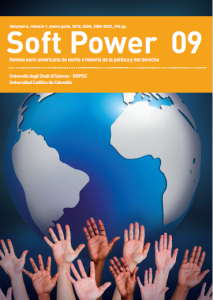Abstract
This paper investigates the relationship between sexual difference and stasis as it is defined by Nicole Loraux in her studies on conflict and politics in classical Athens. As one of the most influential researcher of the classical city, Loraux has investigated the relationship between division and oblivion in the Greek political space, pinpointing the fundamental relationship between politics and conflict and highlighting the division at the heart of the rhetoric of the “City as one”, Hé Polis, and as an harmonic and rational space of freedom and logos.
Keywords

References
Aeschylus (1984). The Oresteia: Agamemnon; The Libation Bearers; The Eumenides. New York: Penguin.
Loraux, N. (1980). La Grèce hors d’elle. L’Homme, 1(20), pp. 105-111.
Loraux, N. (1996). Né de la terre. Mythe et politique à Athènes. Paris: Seuil.
Loraux, N. (2006a). La città divisa. L’oblio nella memoria di Atene. Vicenza: Neri Pozza.
Loraux, N. (2006b). The Invention of Athens. The Funeral Oration in the Classical City. New York: Zone Books.
Thucydides (2000). The History of Peloponnesian war. New York: Penguin.










